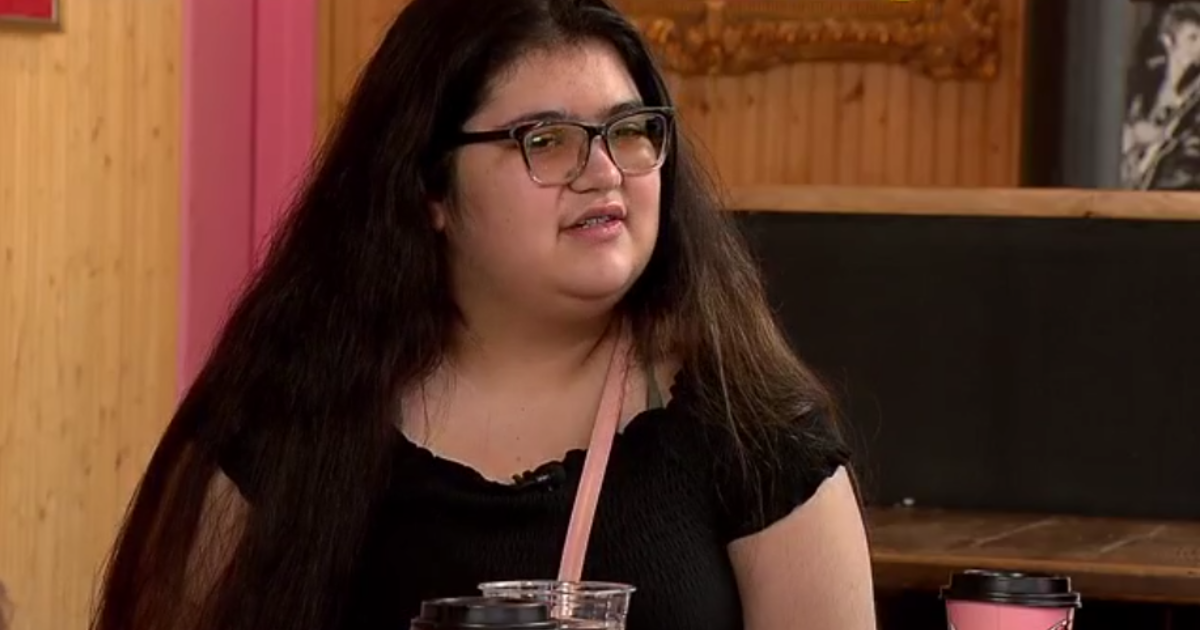How Do Caucuses Work In Colorado?
This story originally aired on CBS4 on Feb. 2, 2008.
DENVER (CBS4) -- All around Colorado in recent weeks, local Republican and Democratic party organizers have been running training sessions for party faithful who will help run Tuesday's caucuses that some might think a little -- well -- sleepy.
"I'm getting it, slowly but surely I'm getting it," said a woman at a Republican training session in Adams County. "This is the third time I've been through the training and now I'm getting it," said a man at a Democratic training session held at the Mercury Cafe in Denver.
"I moved here from Iowa 2 years ago," said another. He gets it.
People get together, try to convince each other to support a particular candidate, cast a vote and then elect delegates and vote on other issues, like the party platforms and choose candidates for other races.
Easy? No, says Arapahoe County republican chairman Nathan Chambers. "It's not. The caucus process is very very complicated and it can be intimidating to the uninitiated."
But that's okay. Party stalwarts don't get this stuff. So don't sweat it.
Here's a primer: Colorado's caucuses are closed. That means you can't cross party lines.
You'll have to have registered as a Republican or Democrat weeks ago, unless you're just turning 18. As long as you pass that test, "Just show up," says Chambers. "You walk in the door, they sign you in, make sure you're qualified to be in that precinct," says the man who sets up the caucuses for the Democratic party in Denver, Bill Compton.
You can find your precinct by checking your county party Web site or the state Website for the Democrats or Republicans.
Once things get started at the caucuses with the election of leaders. "They will immediately select a chair and a secretary for that precinct caucus," says Compton. "They will elect two committee people from that precinct caucus."
Then that banter and bartering starts. "This is what's leftover of the New England town meeting," said a man at the Democratic training session. You can get up and speak, or listen to others.
Speakers will try to woo undecided voters. At the Democratic caucus, you'll be asked to gather in groups according to whom you like as a presidential candidate.
But each of the candidates must get at least 15 percent of the support, or those voters will have to give up and switch allegiances to another.
"Then you start actually what you call a preference poll," says Compton. "That's the official poll and the results of that poll is what we will report to the media that night."
In addition to talking about the party platform and voting for other candidates for August's primary ballot, you'll be electing delegates at the first stage of the delegate selection process.
In the Democratic party, those delegates will run as devoted to certain candidates or as "uncommitted."
"They're being elected to go to the next level as being committed to a particular presidential candidate, but as is sometimes the case, candidates may drop off or drop out of the race," says Compton. "There's nothing in our party rules that binds these people to that preference vote."
The uncommitted delegates will get to decide later whom they'll support. The delegates elected at the precinct level will also have to win at later county caucuses and Congressional caucuses -- or the state caucus before they're chosen to represent Colorado. The state Democratic party will add in a few top party bosses and Colorado will end up with 70 delegates to the national convention in Denver in August.
Get it? That's the hard one.
It's a little easier with the Republicans.
"When you walk in, you show up at the caucus locations, first you'll be checked to make sure you're a qualified elector -- that you're a registered Republican," says the Republicans' Chambers.
Then it's pretty much that same deal as the Democrats in terms of organization and speeches. When it comes to the presidential preference, or straw poll, the Republicans will likely do a simple paper ballot. They do it once. There's no shifting around.
The results of the straw poll at the precinct level will be counted right there and called in to the Republican state headquarters, who will total things and report to the media.
While you'll also elect delegates at the precinct level who will also have to win at the county, congressional and/or state level before they'll go to the national convention, the delegates don't have to admit who it is they support.
Colorado's Republican party will send 46 to this year's convention in Minneapolis. There will be 21 who will have to win first at the precinct, then the county and finally the Congressional caucus level.
There will be three from each of Colorado's seven congressional districts. Twenty-two will be elected at the state convention and three top party leaders are shoo-ins.
In reality, the poll doesn't really mean a lot. It lets the party know what the voters think, but there's no requirement that delegates stick with any particular candidate. But don't think it will be ignored.
"No," says Chambers. "We're very interested in what the grass roots of the party think and certainly the candidates are very interested."
The fact that delegates are uncommitted keeps them open at the national convention, says Republican state party chair Dick Wadhams. "I think it would put Colorado in a very unique and strong position if we had a convention that is in doubt. Having Colorado's delegates be totally uncommitted. Because if it comes down to two candidates and we have uncommitted delegates, we can be very significant in determining who our nominee is ... that would be wonderful."
Additional Resources:
Here's a link that can help you identify what precinct you are in: sos.state.co.us



